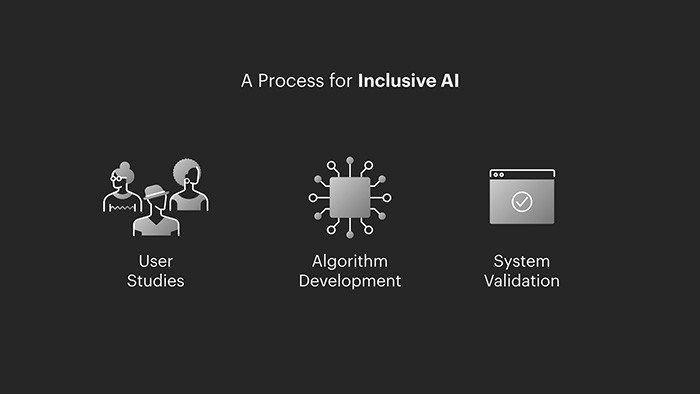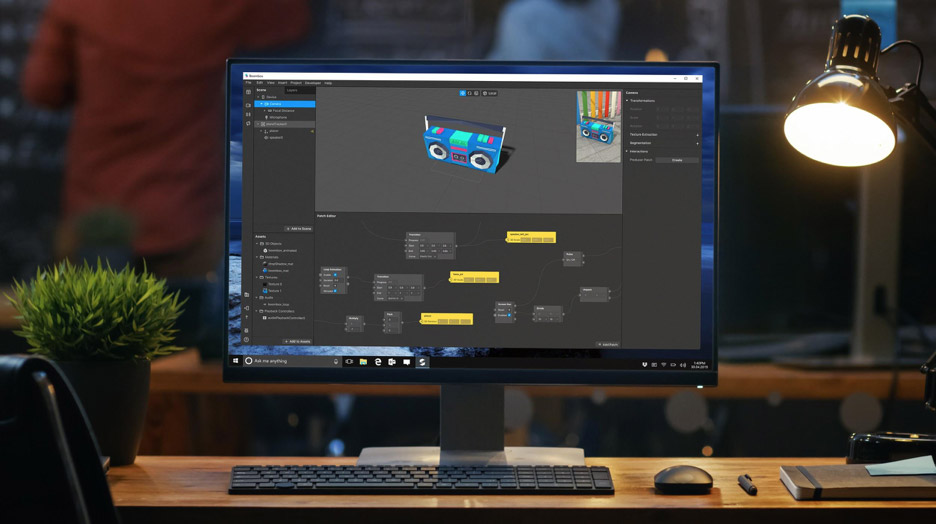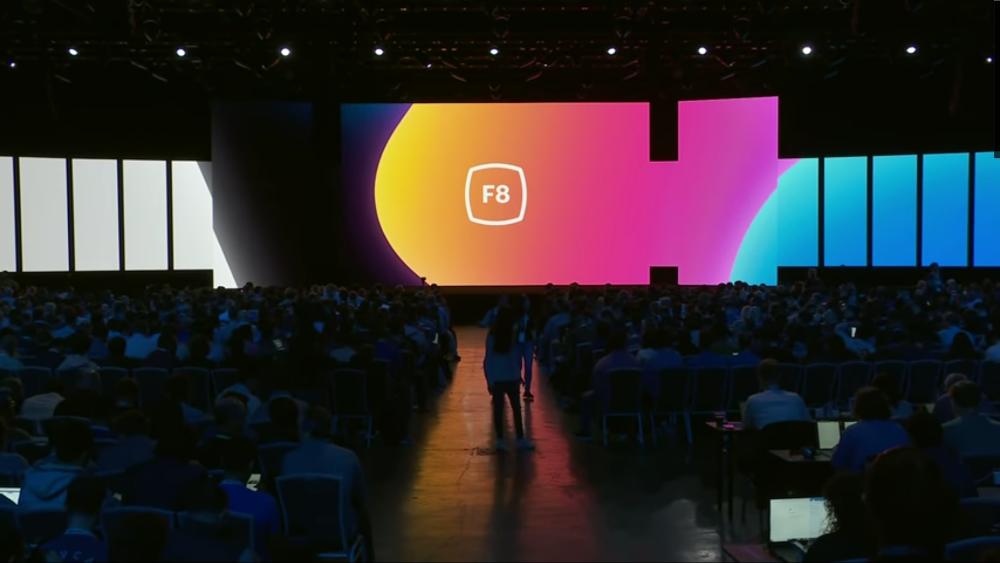So, we left off yesterday talking about privacy within platforms thanks to a healthy serving of end to end encryption, a bunch of shiny new Facebook, Messenger, and Instagram features, and, oh yeah, more privacy. (seriously, you could have made a drinking game out of the number of times each presenter said the word privacy… actually, it would have been a rather short game… we probably wouldn’t have made it past the keynote.)
In any event, day 2 took us off of the privacy deep end where we fell to find ourselves firmly planted on secure ground – namely, on a foundation of digital and intellectual security. Specifically, how Facebook is working to combat the bad stuff on their platforms. We were given glimpses into the systems that are powering Facebook’s fight against unacceptable content on it’s applications. And the biggest system of all is the ever expanding, and ever useful, Artificial Intelligence programming. Within Facebook’s different AI systems, they are training them not simply find prohibited content, but to find it using context from the surrounding posts.
Let’s backup.
Security. Privacy. Innovation. Connectivity. Communication. It’s less of a chicken and egg scenario, and more of a vibranium-powered hamster wheel.
Besides the obvious ::breaching issues::, why, and how did we get here? Isn’t a tech conference supposed to focus on innovation, convention and protectionist, isolationist governmental small-mindedness be damned? Hold on there, Julian Assange. There is such a thing as intellectual property, and a small matter of digital security leading to physical and emotional risks. And, when you’re as big of a corporation as Facebook, you kind of have to be ethical and make sure your product isn’t leading to, say, identity theft.
So, forget your space force. When will we see you international digital police force? On second thought, let’s not climb down that rabbit hole right now.
Let’s get back to how the hell did we get to a place where a tech company is leading the charge on privacy and security rather than leading the battle cry into an innovative revolution?
Funny story… they might be doing both… ish.
Facebook: the harbinger or catalyst of the fourth industrial revolution?!
If you passed grade school (which, if you’re reading this article, we’ll assume you did… if you’re not there yet – remember us when you accept your appointment as ruler of the known universe) you’ll vaguely remember learning about the first industrial revolution. No? We don’t have a magic school bus or police box for you to hop inside, but, we’ll give you a quick overview to get you oriented.
To oversimplify, the (first) industrial revolution was the period in history when we first utilized machinery in production and transportation (roughly 1760-1840). Automation was the name of the game, and we were revolutionizing and industrializing the workplace. Machines were the new workhorses, powered by steam, coal, gas, and electricity. The population grew, urbanization expanded, literacy increased, innovation and knowledge spread, and the polarization of classes gave way to the rise of a middle class.
The second industrial revolution (1870 to the start of World War I) saw the rise of mass production with the expansion of steel, oil, and electricity, and electric power bringing about such wonders as the telephone, light bulb, phonograph and the internal combustion engine. The third industrial revolution started in the 1980’s as we transitioned from analog to digital, aka the rise of the computer.
Which brings us to today. Now, we live in a world in which digitization and automation have supplanted the need for knowing, instead replacing the search for knowledge with the quest for implementation and application of that knowledge. The Fourth Industrial Revolution is marked by breakthroughs in robotics, AI, nanotechnology, quantum computing, biotech, the internet, 3D printing and innumerable other advancements. Whoo, okay deep breath.
This newest industrial revolution, according to those who are studying it, has the potential to connect billions of people to the web, drastically improve the efficiency of business and organizations, improve human communication and conflict resolution, and help regenerate the natural environment.
Great history lesson, but what does this have to do with F8, you ask? Well, the behemoth organization that is Facebook is helping to drive, and being driven by, advances in communication and connectivity. In fact, since 2010, 30 companies using Facebook Business Products have increased their revenue from $0 to over $1 bil yearly. Add to that the fact that over 71% of the 3.8 billion people with internet access participate on at least one of Facebook’s family of platforms, and the thought of Facebook as a harbinger for (catalyst at least) the fourth industrial revolution becomes more and more plausible.
So, when one of the biggest figures in this revolution holds a yearly summit, it’s hard not to take notice, pay close attention, and take (at least) a few notes. It’s worth a look-see, and some time well-spent reading between the lines, to catch a glimpse at what’s coming down the digital pipeline.
Okay, class, hop off the Magic School Bus… Allons y, Alonso! History lesson over.
Back to our regularly scheduled programming.
Facebook also announced that it’s taking an anti-bullying stance by shutting down the bullies – or, at least gently nudging them. Nudging is a new feature that allows Instagram to warn someone before they post a negative comment. It’s not quite censorship, but it’s worth keeping an eye on – no one wants to live in 1984.
Taking into consideration the history of the account, words used in post, the context derived from those words in that order, and the image accompanying the post, Facebook is hoping to be more proactive in it’s banning. It is worth noting that they are also attempting to do this across multiple languages at the same time. And you thought your sister’s accomplishments made you feel inadequate.
But Facebook isn’t just using it’s AI to find the awful people on the internet but also to make sure that things will be a little more equal going forward. In discussing their goals for inclusive AI, they made sure to focus on several factors including skin tone, gender, and dialect. So not only is the robots smarter than you they’re also more #woke.

Jokes aside, what this means is that across all Facebook platforms going forward, there is a concerted effort to not only stop bad actors early but also give everyone an equal voice. And that means a better experience for everyone online.
AR/VR – How Fake Reality is Becoming More Real
The other big topic during day 2 of F8 was the creation and implementation of Augmented Reality and Virtual Reality systems. Quick aside for anyone not super nerdy: AR, or Augmented Reality, is taking the real world and modifying it in the digital space (like on your phone) and VR, or Virtual Reality, is creating a realistic copy of our world in a digital space (like through a headset). So one modifies what you see IRL and the other is more like a copy of our world.
AR is already used quite a bit through the Instagram and Facebook Story filters, so most of us have interacted with AR at some point. But Facebook is looking to make those AR interactions look even more real. They plan on doing this by creating as seamless an experience between the digital object in AR and the real world.
But what does that mean???
Well, for one, custom AR filters are coming to a developer near you. Up until this point, only super special developers and brands involved in the invite-only beta could create their own custom AR filters for Instagram Stories.
But (drumroll, please) Spark AR is becoming available to a larger group of super-excited nerds like us. Custom AR effects are already a current obsession of everyone from Billie Eilish to your best friend’s 15-year-old cousin. In fact, last year, more than 1 billion people used Spark AR effects on Facebook, Messenger, Instagram, and Portal.

Why bother? Besides being super fun, creative, innovative, and interactive? Creating AR effects is a great way to gain and engage with followers since you have to follow the account or visit the profile to gain access. This will also allow for more expansive brand experiences where people will be able to test out a new lipstick shade, new sunglasses, even new furniture. And, once you find one you like, you will be taken to a page to purchase it – eventually, in-app when checkout leaves beta for widespread integration. This means a seamless customer experience – all from the comfort of one app. Get hyped.
But, wait, there’s more!
As displayed in Messenger’s new B2C applications, in the future customers could walk into a store and their phone would be able to show not only items available there but other options available online or in other locations in real time. It could also personalize new items based on the current item you’re looking at. Personalized shopping at it’s finest.
Now what?
Now: we act.
Demand security, privacy, innovation, imagination, and revolution.
Wait, what? Isn’t that what Facebook is already doing?
Yes. But what happens tomorrow depends less on one (giant though it may be) tech company, and more on consumer demand and initiative.
Want more AI? AR/VR? Online purchasing options? Business tools? Tacos? (kidding on that last one… obvi it’s not Tuesday.) While it may not be ask and ye shall receive, the squeaky (and informed) wheel gets the oil.
In conclusion
Like with many sequels, day two of F8 seemed to be a bridge to what comes next (c’mon, pt. II of the Godfather, The Empire Strikes Back, Toy Story 2… you get the idea). Despite being a 2-day conference, F8’s 2nd day was more like a closer look into Day 1, leaving us with more information and more tools. But we have yet to see how these developments will play out in real time. So, like any sequel, there are plenty of unanswered questions, random plot holes, and more than a little confusion – basically the end of any Marvel movie. But, unlike with Marvel movies, we get a chance to help shape what comes next… Just as long as we stay to the end of the credits 😉
